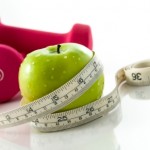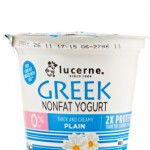I received a comment recently on one of my April 2011 posts asking if I still had the April edition of the Nutrition Action Health Letter (NAHL) published by the Center for Science in the Public Interest. My reader had lost her copy and wanted to know what protein supplement CSPI thought was reasonable. I found the info (it was creatine monohydrate with background research done by an associate professor at the University of Regina in Saskatchewan), emailed it to her and decided to review the whole topic in more depth.
I'm in the gym six or seven days a week for ~two hours or a tad more. I'm not trying to bulk up and never attempt the weights I see some of the really husky guys lifting.
As I walk in, I pass a lineup off supplements and see men especially, mixing up powders from large containers. I've never even considered the idea. I told my reader that the professor's credentials seemed reasonable, but she should ask her own physician before starting any supplements from a bottle. I also mentioned that I hard boil eggs, compost the yolks and eat the whites at meals that are otherwise low in protein.
But I reread the article in the April NAHL "Staying Strong: How exercise & diet can help preserve your muscles." The opening quote caught my eye. Miriam Nelson, the director of Tuft's Center on Physical Activity, Nutrition and Obesity Prevention said, "Muscle is the absolute centerpiece for being healthy, vital and independent as we grow older."
I turned seventy in April, so it made sense to pay attention to her. I'm already active and doing some "resistance training" as was recommended later in the article. I saw also quotes from Ben Hurley, a professor of kinesiology at the University of Maryland (and husband to Jane Hurley, an RD on the NAHL staff).
Hurley has been a longtime student of strength training AKA resitance or weight training and feels it is the mode of choice for preventing muscle loss.
Notice I said preventing loss of muscles, not muscle building. I see men in our gym who are only a few years younger than me and are still bulking up deliberately. The sixteen to twenty-year-old youngsters are presumably doing so to impress the young women or because their friends do so, but why do that at age sixty plus?
But back to protein intake; experts like the woman who holds the Distinguished Chair in Geriatric Medicine at the University of Texas Medical Branch, Galveston, say we should consume 30 grams of protein soon after exercising and that smaller amounts won't work in older adults.
So that's four ounces of skinned chicken breast (170 calories) or my egg white plus some Greek yogurt (with twice the protein of regular yogurt). I'll try that a while and then comment on the idea.


